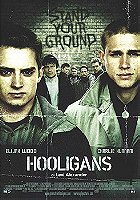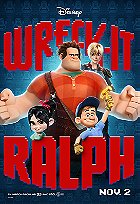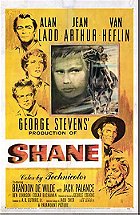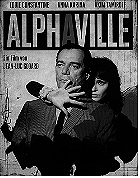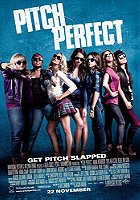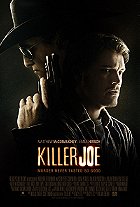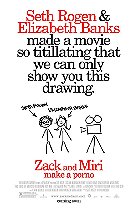Django Unchained is one of 2012's best films, a deliriously enjoyable slice of pulpy entertainment finding Quentin Tarantino back at the top of his game...for about seventy minutes. Following the terrific opening act, the film pussyfoots around in pure boredom for the better part of an hour, showing Tarantino at his most undisciplined and, well, unchained. Tarantino's first all-out Western, Django Unchained is actually a close cousin to 2009's Inglourious Basterds. Like that film, Django Unchained takes place in a troubled historical period, features Christoph Waltz, and exhibits the writer-director's strengths and weaknesses in equal measure. While the film has a handful of great set pieces and a marvellous cast, the flashes of brilliance are let down by Tarantino's indulgent tendencies. Glacially paced, the film never quite soars to excellence despite the tremendous screen artistry on display.

In 1858, two years before the American Civil War, dentist-turned-bounty-hunter Dr. King Schultz (Christoph Waltz) frees a slave named Django (Jamie Foxx) from his captors. Schultz is on the hunt for a trio of wanted slave traders and needs Django to help him identify them. It quickly becomes apparent that Schultz and Django are an ideal team, and the two enter into an agreement: if Django assists Schultz in collecting bounties, he will reap the financial benefits. Afterwards, the two will set off to retrieve Django's wife, Broomhilda (Kerry Washington), who has been enslaved on a plantation owned by the ruthless Calvin Candie (Leonardo DiCaprio). Django and Schultz travel to Mississippi to meet Candie, hoping to buy Broomhilda from the hedonistic plantation owner.
Inspired by the 1966 Spaghetti Western Django (the lead of which, Franco Nero, cameos here), Django Unchained is Tarantino's most linear film to date - there are no chapters, and the timeline is not fragmented. The ingredients for the film are just right and should make for a dynamite action film, but the execution is slipshod. Since this is an uncomplicated story, there's no earthly reason for it to run nearly three hours. After opening strong, Django Unchained begins losing momentum, with nonsensical bloat causing the film to fizzle out long before the climax. Tarantino loves to hear his characters talk, of course, and such extensive dialogue is almost to be expected, but it doesn't excuse the woeful sense of pacing. The first hour or so is brisk, taut and efficient, but then Tarantino gets carried away with speeches and pointless dialogue, bringing the film to its knees.

Django Unchained works in pieces rather than as a whole. Amid the useless plot digressions, the long-winded monologues and the poor attempts at tension, certain set pieces work beautifully; there are funny scenes, intense scenes and several exhilarating sequences. The cartoonish bloodshed is where the film truly takes off. The scenes of Django and Dr. Schultz collecting bounties are pure dynamite, and a late shootout is one of the most extraordinary set pieces Tarantino has ever put on the screen. The bullet hits are hilariously exaggerated, with blood squibs exploding like landmines, creating utter delirium. The cinematography by Robert Richardson is sublime, and since Tarantino adores film, Django Unchained was shot with 35mm film stock, which gives it a gorgeously cinematic appearance. Tarantino evidently strives to create something aesthetically similar to the films of Sergio Leone and Sam Peckinpah, with old-fashioned opening credits and steady photography.
The highlight of Django Unchained, without a doubt, is Waltz as Dr. King Schultz. He essentially plays the good-guy version of his role from Inglourious Basterds; he's well-spoken and impeccably polite, yet he's also a killer at his core. Waltz is a constant delight, radiating charm and delivering Tarantino's dialogue with utmost assurance. Likewise, Foxx is an excellent fit for Django, soft-spoken and full of gravitas. Will Smith was originally in the running for the role, but he might have slanted the tone too much towards comedy. On the other hand, Foxx keeps the tone grounded, and the film is all the better for it. Meanwhile, in his first non-lead role since the 1990s, DiCaprio clearly has fun playing Calvin Candie. DiCaprio is not always the most interesting speaker, but his performance is committed and gritty. Samuel L. Jackson also puts in an unexpected performance as a close friend of Candie's. Jackson is fantastic - he is both funny and sinister. The supporting cast also includes the likes of Zoe Bell, Don Johnson, James Remar (in two roles), Bruce Dern, and John Jarratt. Even Tarantino himself appears towards the end of the film, though his Australian accent is incredibly questionable.

Django Unchained is perhaps the most frustrating motion picture of 2012. Somewhere within its overstuffed 165-minute runtime is a far superior, snappier 90-minute movie, and it is irksome to see Tarantino wasting so many brilliant film fragments by surrounding them with tedium. Tarantino's earlier efforts sparkle so much due to budget and timing limitations, which forced the filmmaker to show discipline. But armed with a huge budget and with the freedom to do what he wants, he's far less effective.
5.8/10
 Login
Login
 Home
Home 183 Lists
183 Lists 1665 Reviews
1665 Reviews Collections
Collections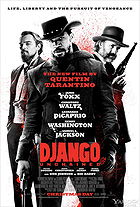
 0 comments,
0 comments, 